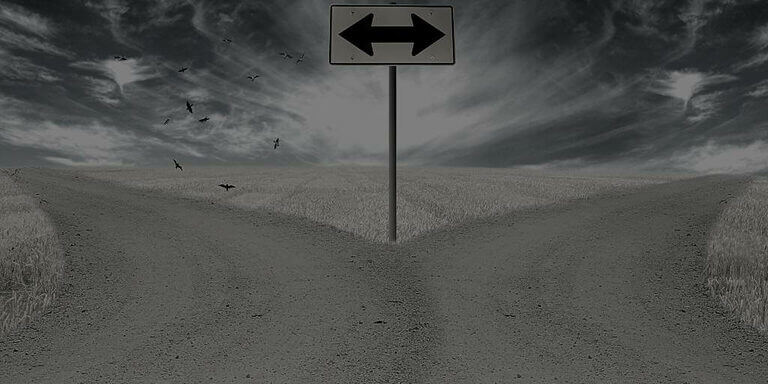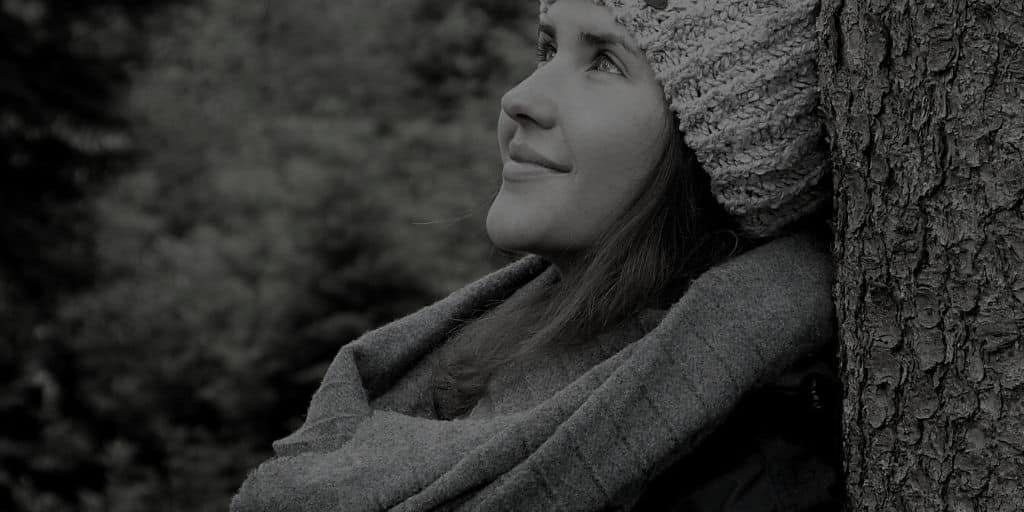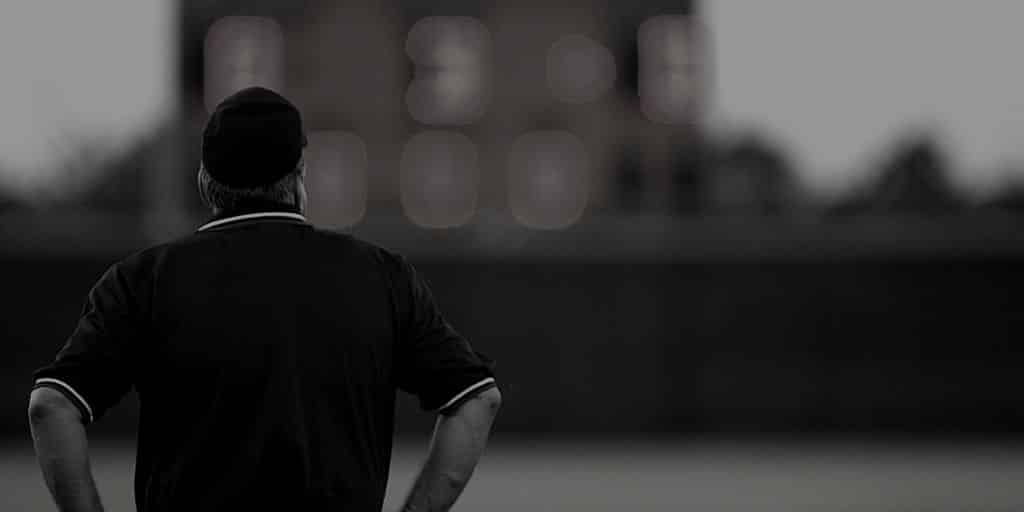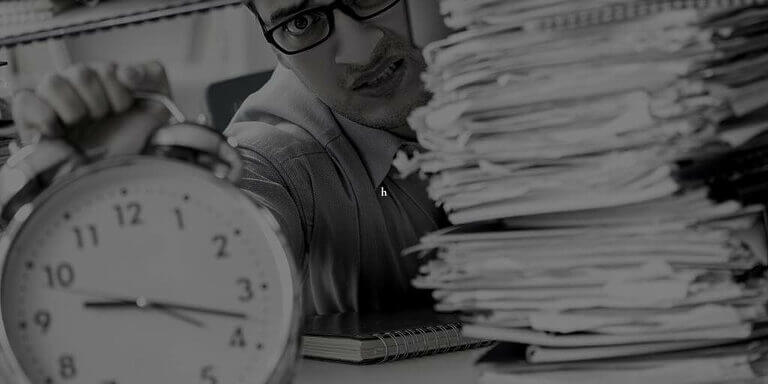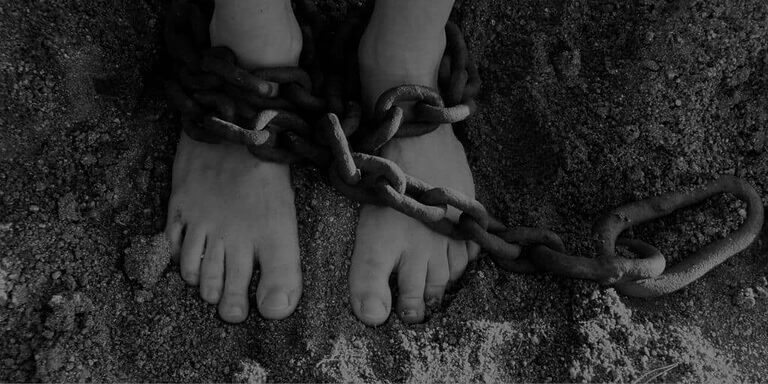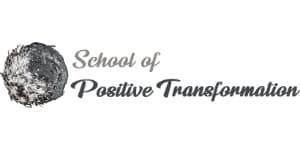Editions:
2018
2017
My Definition of a personal development book
A personal development book to me is any book that contains information with the purpose of influencing a direct personal transformation within the reader.
This could come in the form of a typical personal development book like Awaken The Giant Within by Tony Robbins or a less typical, more metaphysical approach like The Inside Out Revolution by Michael Neill.
Whether a certain book will resonate with us or not largely depends on what journey we are on and where we are in our journey.
Top Personal Development Books – 2018 Edition
Goal: 40
Read: 46
*I rated the books based on the impact they had on my personal growth.*
Loving What Is: Four Questions That Can Change Your Life
By Byron Katie
352 Pages
What is this book about?
For reference, I will call her Katie, as apparently that is what she prefers.
The premise of this book is to dissolve our sense of self, our ego, in light of a higher awareness. She teaches us that all suffering is optional and is created by our confusion and resistance to what is. She shows us a path toward love oppose to pain or suffering.
Katie teaches us to do this by way of thought inquiry through a very powerful set of questions she calls “The Work”.
The four questions this book (The Work) revolves around are:
1. Is it true?
2. Can you absolutely know that it’s true?
3. How do you react, what happens, when you believe that thought?
4. Who would you be without the thought?
Using the four questions, here’s an example using the statement “My husband should understand me.”
1. Is it true? Is it true that he should understand you? Be still. Wait for the heart’s response.
2. Can you absolutely know that it’s true?
Ultimately, can you really know what he should or shouldn’t
understand? Can you absolutely know what is in his best interest to understand?
3. How do you react, what happens, when you believe that thought? What happens when you believe “My husband should understand me” and he doesn’t?
Do you experience anger, stress, or frustration? How do you treat your husband? Do you give him “the look”? Do you try to change him in any way? How do these reactions feel? How do you treat yourself? Does that thought bring stress or peace into your life? Be still as you listen.
4. Who would you be without the thought?
Close your eyes. Picture yourself in the presence of your husband in this situation. Now imagine looking at your husband, just for a moment, without the thought “My husband should understand me.” What do you see? What would your life look like without that thought?
Katie takes you on a journey to the depth of your being by discussing the power of her inquiry through love and selflessness.
This discussion is mixed with examples of The Work through transcripts of real inquiries she has done with people. These examples are amazing, as you can truly see the power of The Work in action.
What impact did this book have on my personal growth and development?
In my opinion, the goal of most self-improvement and personal development books with a spiritual undertone is to dissolve the ego. To go beyond our sense of self and experience some level of transcendence.
Most appear to fail at doing this for one main reason, they lack simplicity. And that brings me to what I love most about this book…its’ simplicity!
As I went through this book over the course of a couple of weeks, and several weeks thereafter, I would constantly catch myself doing The Work in my head when I recognized a thought that wasn’t serving me.
This book really taught me that just the simple act of questioning our thoughts is enough to see through all our made-up bull shit.
Who would I recommend this book for?
EVERYONE.
Seriously…everyone. There is not one single human being on this earth that could not benefit from this book.
A Mind At Home With Itself
By Byron Katie
304 Pages
What is this book about?
This book is an extension of my #1 choice, Loving What Is. It is more or less a series of transcripts from real inquires Katie had with people.
If you are interested in Katies’ work, I recommend you read Loving What Is before you read this book. Loving What Is will give a much deeper understanding of what she calls “The Work”, whereas this book gives plenty of examples of The Work in action.
What impact did this book have on my personal growth and development?
See my answer to the same question under Loving What Is.
Who would I recommend this book for?
Anyone who has read Loving What Is by Byron Katie and has an interest in her work.
The Relationship Handbook: A Simple Guide To Satisfying Relationships
By George Pransky
246 Pages
What is this book about?
Relationships! However, this is NOT your typical relationship book. It is original, unique, and like no other. There’s nothing to work on, just a different understanding.
I heard about it from many coaches and facilitators that stem from the Three Principles understanding of Mind, Consciousness, and Thought. As the author of this book, Dr. George Pransky is one of the pioneers of this life-transforming understanding.
This book points us inward, toward responsibility and the inside-out nature of relationships and relationship problems.
Problems aren’t to be dealt with, they are to be transcended. George shows us exactly how this is done, no matter the problem.
Many of us overanalyze our relationship problems and our relationships as a whole. George points us back toward the simplicity of relationships and all they en-tale.
What impact did this book have on my personal growth and development?
My wife is very analytical, and this analysis is quite typical of our disagreements. Whereas I’m quite simple, however, I typically get sucked into the analysis because I didn’t know how to effectively direct the conversation toward simplicity. More so, I didn’t know how to create enough value in simplicity for her to even entertain the idea!
This book gave me that direction, that missing link between my thoughts and words.
It wasn’t long after I read this book that my wife and I had a bit of a squabble. Our back and forth was going the way it normally would until I remembered the book. Certain messages throughout the book really stuck with me and I decided to try them on for size.
Without spoiling the contents of the book, all I can say is…WOW! It actually worked! We made a simple shift in our collective focus, the tension started to ease and we could see the dust settling when usually it would remain cloudy and tense, without a resolve for hours.
Who would I recommend this book for?
Anyone who wants to improve their relationships from the inside out.
The Enlightened Gardener
By Sydney Banks
176 Pages
What is this book about?
A fictional story about 4 psychologists from America who travel to England for a conference. During this trip, they come across a gardener, who little did they know would transform their lives forever through a new understanding of the fundamental nature of life.
This understanding is now known as the Three Principles of Universal Mind, Universal Consciousness, and Universal Thought.
There are many great metaphors used to help one deepen their understanding of how these principles create our every experience of life.
What impact did this book have on my personal growth and development?
Prior to reading this book, I had already read the sequel and been a student of the Three Principles for a little more than 6 months. Therefore, the understanding this book points toward is not new to me, but it still gave me fresh eyes to see with.
Who would I recommend this book for?
Anyone interested wants to transform their entire life from the inside out. This is a great place to start. It will open up a path that is never-ending.
We Consciousness: 33 Profound Truths For Inner And Outer Peace
By Karen Noe
216 Pages
What is this book about?
In short, this book is written by a proclaimed Medium, on the topic of collective consciousness.
She claims to have received communication from the now-deceased DR. Wayne Dyer on this topic. This communication has translated into 33 profound truths on how to be an instrument of peace.
What impact did this book have on my personal growth and development?
Before reading this book, becoming a vegetarian had been in the back of my mind for some time. I am now Vegan, this is the book that put the nail in the coffin for me.
There is a chapter dedicated to our relationship with animals within our collective consciousness. I have always been an animal lover and this chapter took my love to a whole new level, a level in which I could not dismiss the act of eating them anymore.
The impact that very chapter had on my life is enormous.
Who would I recommend this book for?
First and foremost, Wayne Dyer fans!
Otherwise, anyone interested in spirituality.
Supercoach: 10 Secrets To Transform Anyone’s Like
By Michael Neill
256 Pages
What is this book about?
Michael Neill is my favourite author and coach. His coaching is also influenced by the Three Principles understanding of Mind, Consciousness, and Thought.
This is the best book I have come across that connects spirituality with pragmatism, or shall I say transcends pragmatism, through a compartmentalized approach.
This book is a revision of its’ 2010 version, also titles SuperCoach.
Michael dedicates entire chapters to each of the 10 secrets. Each chapter begins with clever fables and short stories that really get his point across.
He discusses each of the 10 secrets with humour and clarity, all while pointing us toward the inside-out nature of each of these secrets.
The 10 secrets he discusses are:
1. The Art of Dreaming
2. You Were Born Happy
3. A Whole New Way of Thinking About Goals
4. The Simple Way To Make Decisions
5. Rainy Days and Mondays
6. How to Get Stuff Done
7. The Magic of Connection
8. How To Ask For Anything From Anyone
9. The Secret to a Lifetime of Financial Security
10. The Power of Hope
What impact did this book have on my personal growth and development?
Prior to reading this book, I had been a student of the Three Principle for about 18 months. I had listened to Michael Neill’s podcast twice over, and read two of his other Three Principles-based books twice over as well.
This book really helped me link the pragmatic approach to different aspects of life with the spiritual. It really opened my eyes to new ways of looking at the practical side of life.
Who would I recommend this book for?
Everyone, spiritual or not. Michaels’ writing will appeal to the masses with clarity and contemplation.
Willpower Doesn’t Work
By Benjamin P. Hardy
256 Pages
What is this book about?
This book can be easily summed up as this: A persuasive argument toward how our environment shapes and influences our entire lives.
What impact did this book have on my personal growth and development?
I nearly stopped reading this book after going through the first chapter or so.
Given my inside-out approach to life, and this book being more of an outside-in approach, I nearly chucked it to the side due to my strong bias. However, I decided to give it a shot. I recognized my bias and decided to move forward with an open mind, and I’m glad I did.
Our environment cannot be ignored, its’ influence cannot be ignored. The inside-out understanding says that our thoughts create our feelings, not our external environment. But we are not perfect, we all have blind spots, and our environment has a very real influence on our thoughts.
This book really helped me bridge the gap between the inside-out nature of life with the outside-in nature of life. So I thought if our environment has an influence on us, why not learn to use this knowledge to our advantage? Combine inside-out with outside-in, let them feed off each other.
Who would I recommend this book for?
Anyone who wants to learn to use their environment to their advantage.
Top 10 Personal Development Books – 2017 Edition
Goal: 23
Read: 35
*I rated the books based on the impact they had on my personal growth.*
The Holding Space Practice
By Carol Webster
128 Pages
I first heard about holding space from Leon Vanderpol’s blog and podcast centered around deep transformational coaching. It is because of this that I wanted to go deeper into learning about holding space. After a search on Amazon, I came across this amazing book. The book is very to the point, no fluff, and keeps you engaged through all 128 pages.
One, out of the many, things I LOVE about this book is how practical it is. It has numerous practical exercises within the teachings that will allow you to take several steps toward being able to hold space. I will warn you, the exercises are not for the faint of heart, and you must check your ego at the door. If completed, the exercises are life-changing, I speak from personal experience.
What is this book about?
It is all about holding space!
What does it mean to hold space?
- Honor individual without judgement, first self, then family, then others
- Suspension of anxiety over expected outcomes
- Accepting “now” as it really is without undue regret or control
- Allowing self and others to choose as we avoid inappropriate pressure, collusion, manipulation, and/or exploitation
There is also a workbook available as a companion to the book that I highly recommend you get as the actual book has numerous exercises in it. You can purchase that from Amazon as well. CLICK HERE
How to read The Holding Space Practice for FREE
I gained access to this book through Kindle Unlimited. If you purchase the book outside of Kindle Unlimited it will cost you $9.99 for Kindle format. If you do not have Kindle Unlimited then I recommend to sign up for the 30-day trial and you can read the book for free!
And if you don’t have a Kindle Reader you will need this FREE KINDLE APP:
Dying to Be Me: My Journey from Cancer, to Near Death, to True Healing
By Anita Moorjani
191 Pages
What is this book about?
First half of the book:
The first half of the book tells the story behind Anita’s transformation, who she was before her NDE (Near Death Experience) that led to her spontaneous cure from cancer. There were many religious and personal conflicts in her life before her NDE. This sets the stage for the second half of the book, allowing it to be so transformative.
Second half of the book:
The second half of the book is one of the most inspiring and transformational reads I have ever encountered. Anita speaks like a spiritually enlighterned person since her NDE. She recalls her past from a perspective that is so inspiring.
What impact did this book have on my personal growth and development?
This is the book that influenced me to start my never ending journey toward personal and spiritual growth just over a year ago. It really rocked my world, all my beliefs, paradigms, and perspectives on life all got pulled into question. I would like to mention, I can relate to her journey more than many people due to my wife (who I have been with for nearly 9 years now) having Chronic Leukemia.
I will always hold a special place on my book shelf for this book because of that. This is proof that Dying To Be Me has the power to take you on a transformational journey.
Who do I recommend this book for?
For anyone who struggles with sacraficing who they truly are and all that they believe in for external forces such as Religion, family, friends, self-image ect. this is the book for you!
Deep Listening: Impact Beyond Words
By Oscar Trimboli
119 Pages (Kindle only)
What is this book about?
This book by Oscar Trimboli truly lives up to its’ title, and it teaches you how to listen beyond the words you hear. It is not your typical book on listening by manipulating the other person to think that you’re listening, whether you’re actually listening or not. So you won’t find techniques such as active listening or mirroring in this book.
What impact did this book have on my personal development and growth?
By far the best information I have ever come across when it comes to listening.
Highlights from this book:
- We speak between 125 and 175 words per minute, yet we can listen to 400 words per minute, this is the 125/400 rule
- Why the pause is the most critical moment in your listening, most people get this wrong
- There are 5 levels of listening
- Learn about unconscious listening vs conscious listening
- What it means to listen beyond words and how to do it
Awaken The Giant Within
By Tony Robbins
544 Pages
When the topic of the best personal development books gets discussed, Awaken The Giant Within is typically the most popular personal development book talked about. It is not on my list due to popularity though, it is one of the best books for personal growth out there in my opinion. It is a lengthy book, with quite a bit of fluff, which I have found is typical of Tony as I have read all of his books. Although this book could have been written in under 300 pages it does not take away from its’ power.
What is this book about?
- Making decisions
- Understanding your beliefs and how to change them
- Understanding your values and how to change them
- Learn Neuro Associative Conditioning (NAC) to create lasting change
- How the quality of your questions create the quality of your life
- Transformational vocabulary
- Numerous practical exerices
What impact did this book have on my personal growth and development?
My biggest take away from Awaken The Giant Within is that everything in life is a pattern., and an awareness of this alone was enough to rock my boat. Because of the practical exercises within this book I learned a lot about myself. This took me through a process of deep self exploration. This was my first introduction to beliefs and values, and what fascinated me at the time was understanding that I can change them! That was a breakthrough for me at the time (7 months ago). This was also my first introduction to how habits are formed by thought and how they can be transformed by thought.
Who would I recommend this book to?
This is a great book for anyone who is fairly new to the concept of developing themselves. What you learn about yourself from doing the exercises in the book will be a great gateway toward what direction you would like to go next.
This book will only help you if… you actually do the exercises! Lucky for you, I have created a 37 page PDF of every single exercise in Awaken The Giant Within to give away for free. Click on the link to be taken there. Awaken The Giant Within Workbook
The Four Agreements: A Practical Guide to Personal Freedom
By Miguel Ruiz
168 Pages
This is another popular book for those interested in personal growth, for good reason. This is a short, easy read that kept me engaged from beginning to end.
What is this book about?
How did you know?
What are the four agreements?
- Be impeccable with your word
- Don’t take anything personally
- Don’t make assumptions
- Always do your best
The Four Agreements goes deeper into what each agreement really means at its’ core and how it can transform your life.
What impact did this book have on my personal growth and development?
Immediately after reading this book I went and bought a small whiteboard to place on my fridge. On this white board I wrote The Four Agreements so that I will look at them every day. Doing my best to live by The Four Agreements has transformed my life.
Knowing what these four agreements are is not what will transform you. It is understanding them on the deepest level and then applying them to your life that will transform you and that is what the book is for.
The Power of Now: A Guide to Spiritual Enlightenment
By Eckhart Tolle
229 Pages
I read this book just over a year ago from writing this, right after I read Dying To Be Me by Anita Moorjani. I thought it was a bit of a dry read when I first read it. Now that I am much further along on my transformational journey I appreciate what I took away from the book much more.
What is this book about?
The Power of Now is about, you guessed it…the NOW. The present moment is all we have and all we ever will have. This book explains the power of being present and mindful towards each and every moment of our lives. Eckhart Tolle uses typical life examples and how being in the present moment effects different circumstances.
What impact did this book have on my personal growth and development?
This is the book that got me started on my mindfulness and meditation journey. I did not realize the impact it had until now. For this book alone to inspire me down a path of mindfulness, meditation, and spirituality really says a lot of the impact it had on me. I will be reading this book again this year now that I am at a different point in my journey. I am sure I will take away something different from it the 2nd time around. It is one of those books that is so simple, yet so profound that so much gets missed.
Who would I recommend this book to?
If you would like to become for mindful and present in your life then I highly recommend this book for you.
The Miracle Morning: The Not-So-Obvious Secret Guaranteed to Transform Your Life (Before 8AM)
By Hal Elrod
172 Pages
This book was an engaging read and well written. It was written effectively enough to inspire me to create my own morning routine! Considering the topic, I don’t think many people out there could have written in such an inspiring way.
What is this book about?
The Miracle Morning is all about the importance and impact of having a morning ritual. It sites several people who are considered highly successful that always started their day with a morning ritual.
What impact did this book have on my personal growth and development?
I was not even finished the book and I had already started adjusting my morning routine. At the point of reading this book I was already waking up an hour before I had to go in for my first personal training client which is an 8 minute drive away so it gave me plenty of time. My routine at this point was meditation for 15 minutes and showering. I don’t have to worry about breakfast because I do intermittent fasting.
After dabbling with different forms of exercise, timing of different aspects of the routine, and trying different things, I wake up 90 minutes before my 1st client and my morning routine now looks like this:
- Meditation 10-20 minutes
- Yoga 15 minutes
- Journal 5 minutes
- Read 10-15 minutes
In short, I can tell you that I have never felt better since starting my days like this.
Who would I recommend this book to?
Anyone who wants to feel better from the moment they wake and set their day up for aliveness and fulfillment.
The Enlightened Gardener Revisited
By Sydney Banks
168 Pages
This is the first book I read by Sydney Banks. It is likely you have never heard of him. He is the one to discover the Three Principles understanding in the world of psychology and spirituality.
What is this book about?
A fictional story about a pair of psychologists returning to England to visit an enlightened gardener who taught them this understanding called The Three Principles on their last visit. This story is the sequel to the original book The Enlightened Gardener. The two psychologists pick the gardeners brain to deepen their understanding of the Three Principles throughout their entire visit. They cannot understand how their clients are getting such miraculous results just from facilitating the teaching of the Three Principles to their clients.
What impact did this book have on my personal growth and development?
The Enlightened Gardener Revisited is by far the most insightful and profound book I have ever read. It is filled with so much wisdom. I am already familiar with the Three Principles as I have been constantly deepening my understanding of them for the past several months (and it has been the most life changing few months of my life, in large part thanks to this). This allowed me to truly appreciate what is inside this book. If I had read this book 6 months ago it would have been jiberish to me, I would not have comprehended much of it.
This is one of those books I can re-read again and again and take something different away from it every single time. I had to pause several times throughout the book to think about what I just read, and it is not because he uses complex words or sentences, it is because what he teaches is just so profound.
Who would I recommend this book to?
Anyone who wants to understand how they create every experience of their life and how once you understand this it will transform your life forever. If you are not familar with the Three Principles I do not recommend this book for you. I suggest starting with Sydney Bank’s prequal to this book called The Enlightened Gardener or Michael Neill’s Inside-Out Revolution, or both.
The Inside-Out Revolution: The Only Thing You Need to Know to Change Your Life Forever
By Michael Neill
168 Pages
This is the second book I read by Michael Neill, the first book I read of his was Supercoach, which is also a fantastic book. Prior to reading this book I had listened to every YouTube video I could find on Michael Neill and every single one of his 100+ episodes from his podcast. The Inside-Out Revolution reinforced much of what I had already learned from Michael, and what he teaches is amazing.
What is this book about?
The essence of the book is spiritual in nature. The underlying foundation of the book is built upon the Three Principles understanding that was discovered by Sydney Banks. From all the people I have listened to who talk about this understanding, Michael delivers the information in the simplest way in my opinion. Trying to make sense of anything spiritual can be extremely difficult, and I think he nails it.
What impact did this book have on my personal growth and development?
With me already being so familiar with Michael Neill’s work and the three principles, what this book did for me was help create further insights and deepen my understanding. That is all I can really ask for from this book.
Who would I recommend this book to?
If you think the outside world is to blame for your circumstances, thoughts, actions, or feelings than this book is for you. Also, anyone who is new to spirituality or who is familiar with spirituality will take something away from this book.
Man’s Search For Meaning
By Viktor E. Frankl
184 Pages
OK, I have something to confess, I didn’t actually read this book. I know, I know, you can judge me all you want. I listened to the audiobook version instead. I loved the message of the book so much I just could not leave it off the list. I will be ordering a paperback version this year as I do want to read the paperback version.
What is this book about?
Man’s Search For Meaning is a true story about Viktor E. Frankl’s encounter with being a prisoner in the Concentration Camps during World War 2. The basis of the book is Viktor contemplating life. What is his meaning? What is his purpose? How can he find meaning in the midst of such a horrific event? Read the book if you would like to find out how he survived with his mental health intact and thrived in his life once he got out.
What impact did this book have on my personal growth and development?
Prior to reading this book, I believed that bringing meaning and purpose to our life can completely eradicate many of our life’s “problems”. Every single one of our problems are thought created, and if you tend to create problems chronically you are most likely attempting to fill the empty space that is not being filled by meaning and purpose. This book to me to a deeper understanding of meaning and purpose in my life and inspired me to contemplate the purpose of my own life.
With my wife having Leukemia, I have had some pretty terrible lows in recent years, as you can imagine. I can be thankful she is still here, we both are. I have also had some pretty terrific highs. Man’s Search For Meaning is proof that no matter how bad you think your life is, you always have the opportunity to create meaning and purpose in your life. This story inspired me to start giving back to the world by finding meaning in my suffering the same way Viktor did.
Who would I recommend this book to?
Much of our lives are spent comparing and contrasting. Comparing our low points with someone else’s low points for example. If you are someone who tends to do this a lot, or if you are someone who plays victim a lot, you need to read this book.
Anyone who feels a lack of purpose, meaning, or fulfillment in their life must read this book.
Honourable Mention
Breakthrough Experience
By John F. Demartini
256 Pages
What is this book about?
The foundation of Breakthrough Experience is the positive/negative polarities of life. This was a challenging read. Dr. Demartini dives deep into the spiritual world and the world of quantum physics.
He then puts it all together into what he calls the Quantum Collapse Process, as he assumes you have an understanding of the material. The basis of this process is to transform any negative feelings you have towards someone into neutrality.
This process is quite daring as you have to have the courage to see the bad with the good, and the good with the bad, in yourself and the person you are trying to collapse. This is very powerful stuff.
What impact did this book have on my personal growth and development?
Even though I have yet to sit down and do the Quantum Collapse Process on anyone I had several insights throughout the book. Just the thought of trying to see the good through the bad in someone I have strong negative feelings towards is life-transforming.
This is the book that also transformed the way I look at emotions. That it is OK to feel the so-called “negative emotions”, they are every bit a part of life as the so-called “positive emotions”, and they are both meant to be felt equally throughout life. Understanding this has allowed to me see emotions as antagonistic instead of “good” or “bad”. Not labeling an emotion as “bad” allows it to be felt full force as opposed to resisting or suppressing it.
Who would I recommend this book to?
I recommend this to anyone who is familiar with spirituality and quantum physics. Having an open mind is a must while reading this book. If this is you and you want to learn how to completely neutralize your emotions towards yourself and/or others then this book is for you.


